They Were Expendable (1945)
“Our job is to lay down that sacrifice; that’s what we were trained for.”
|
Synopsis: |
|
Genres, Themes, Actors, and Directors:
Review: Sure enough, Montgomery is allowed to demonstrate the veracity of this claim — but not without significant losses and sacrifice. Indeed, Peary points out that this film remains “one of the most sobering, somber (though there is humor and romance), and sincerely tender World War II films,” a “picture that moves forward on an even keel, without highs and lows, without climaxes, for though the PT squadron has several impressive victories in sea skirmishes, we are well aware that each win costs the lives of men and the damage to or loss of a boat, and that overall, Americans are losing the war in the Pacific.” This is far from a feel-good film, and the characters aren’t viewed as heroes — instead, “Ford presents them as professionals, wisely scared of battle but prepared to do their duty nevertheless, confident in their decisions (there are many strategy sessions in the film): … and their skills as soldiers, but cognizant of the dangers involved, and willing to follow all orders even if it means taking on humbling assignments.” In addition, “there is tremendous camaraderie” and a “sense of community,” with the “older, veteran soldiers watch[ing] over the baby-faced recruits (a familiar Ford theme)”: Montgomery — an actual PT commander at Guadalcanal and Normandy — was able to draw upon his real-life experiences to give “a truly wonderful, understated performance” (Peary nominates him as one of the Best Actors of the Year in his Alternate Oscars): … with Wayne appropriately taking the back seat (but also quite good in his role). Finally, Peary notes that the “picture has great visual beauty (especially of night scenes, including sea battles): … propaganda value, and many poignant moments: the men talk with a brave, dying, soldier: … Sandy (Donna Reed is breathtakingly beautiful) sits alone in a hammock at the dance, left out while Buckley and Rusty talk shop: … [and] Sandy dines with Rusty, Buckley, and four other soldiers, giving the lonely men pleasure.” This fine film remains a worthy addition to our cinematic understanding of how World War II played out for Americans on the front lines, and should be seen by all film fanatics. Notable Performances, Qualities, and Moments:
Must See? Categories
Links: |
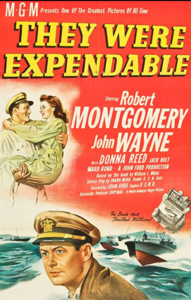
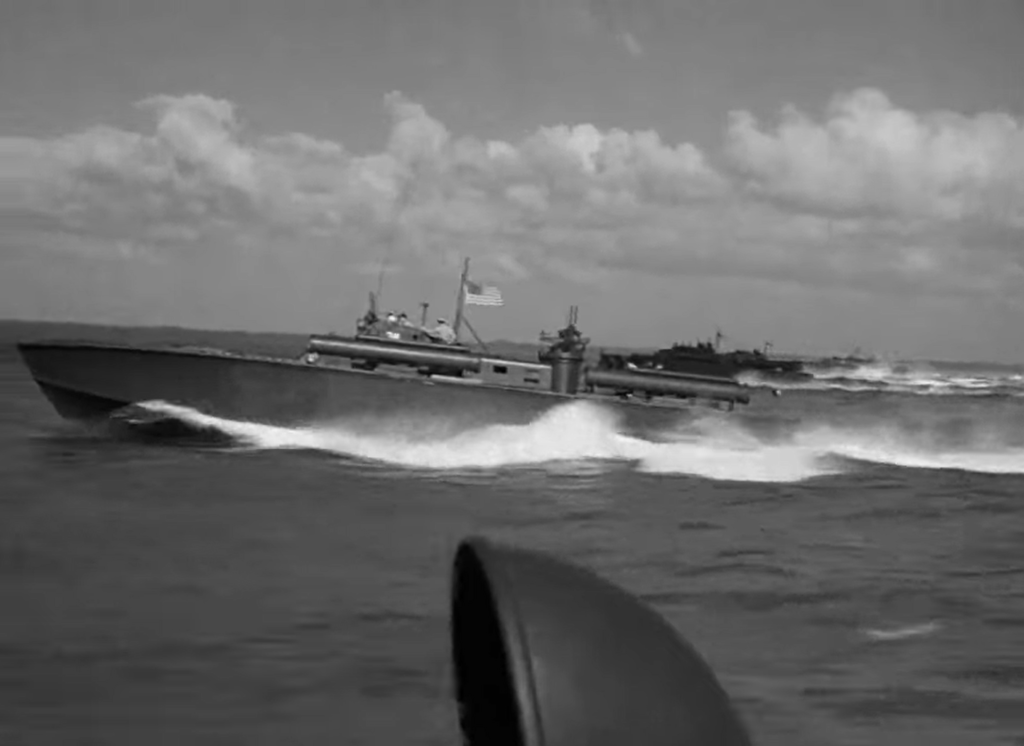
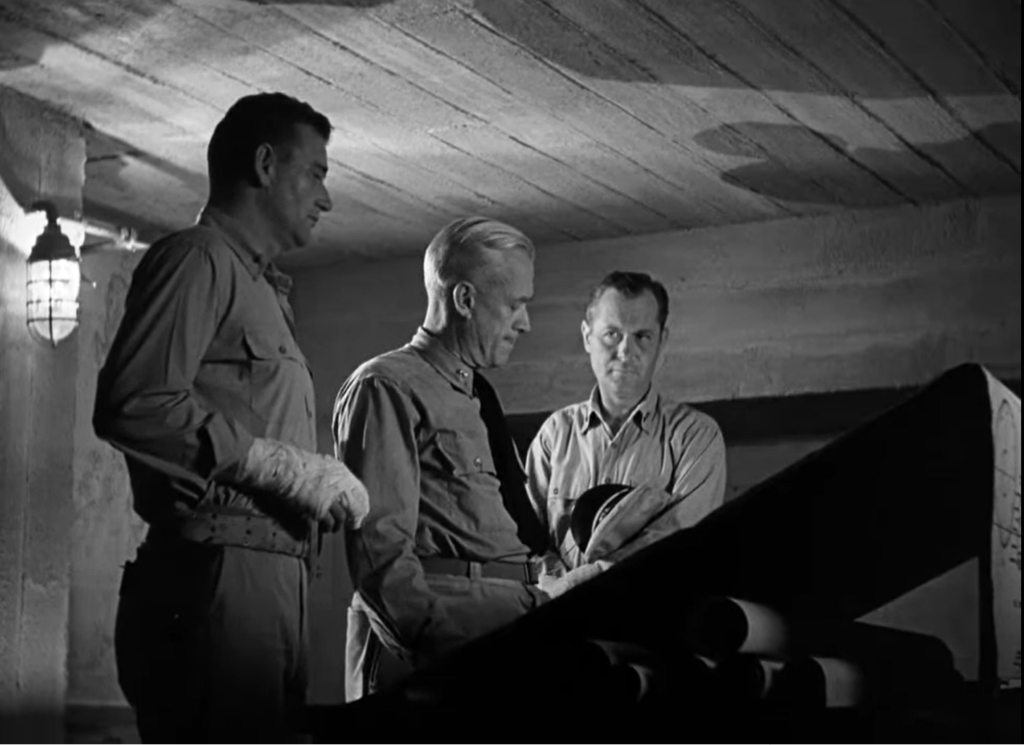
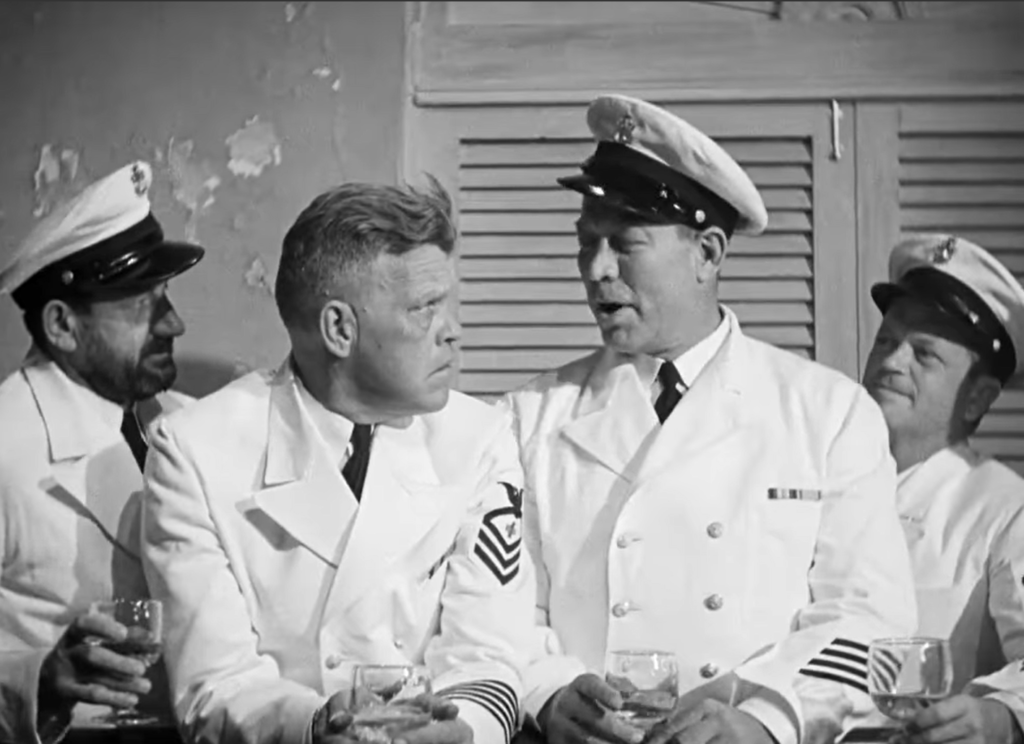
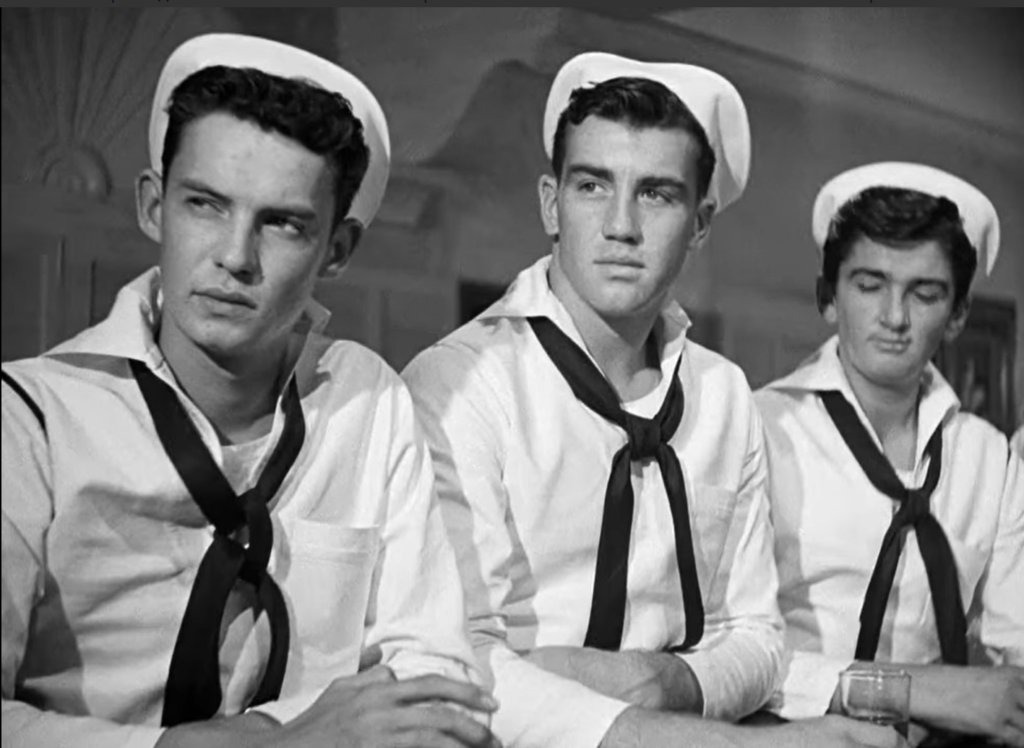
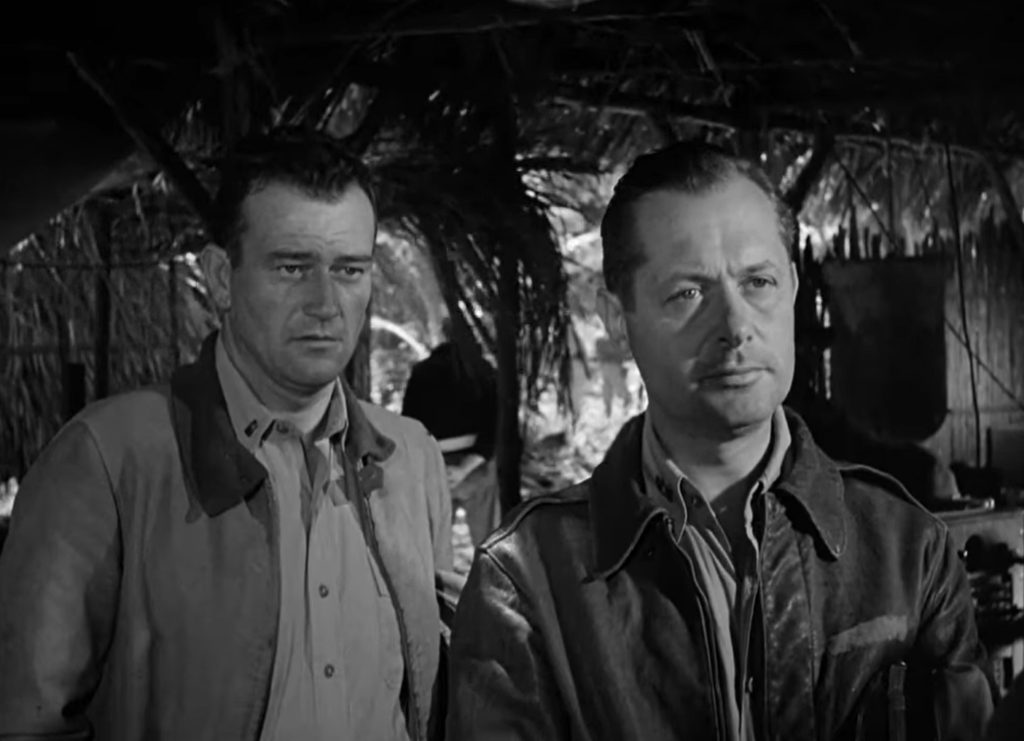
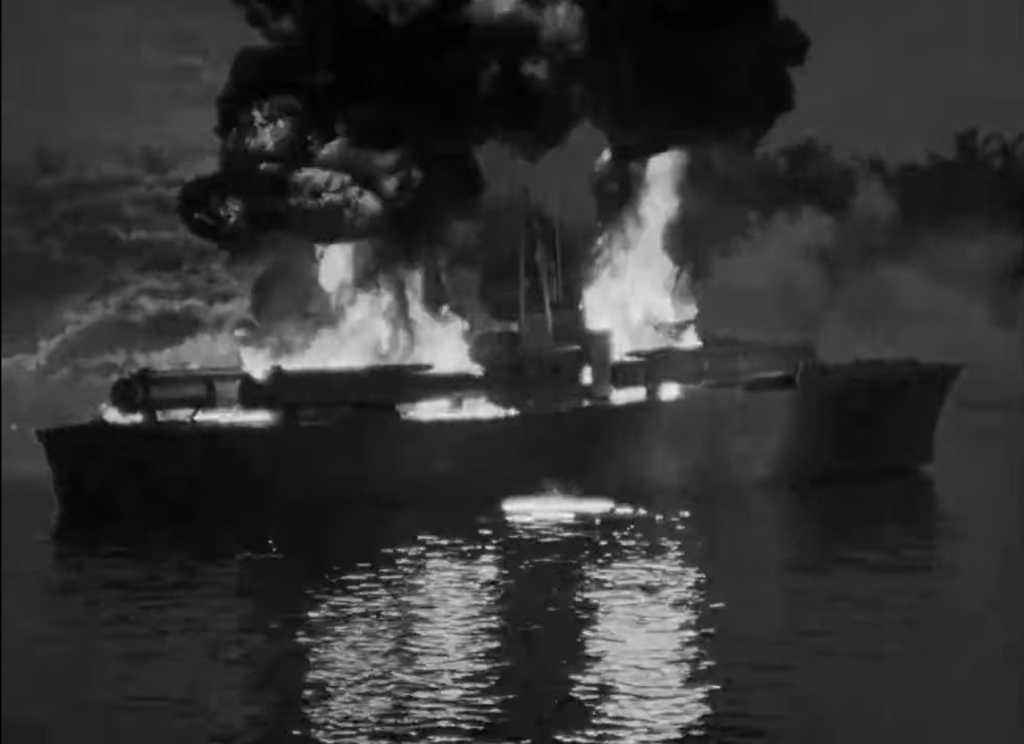
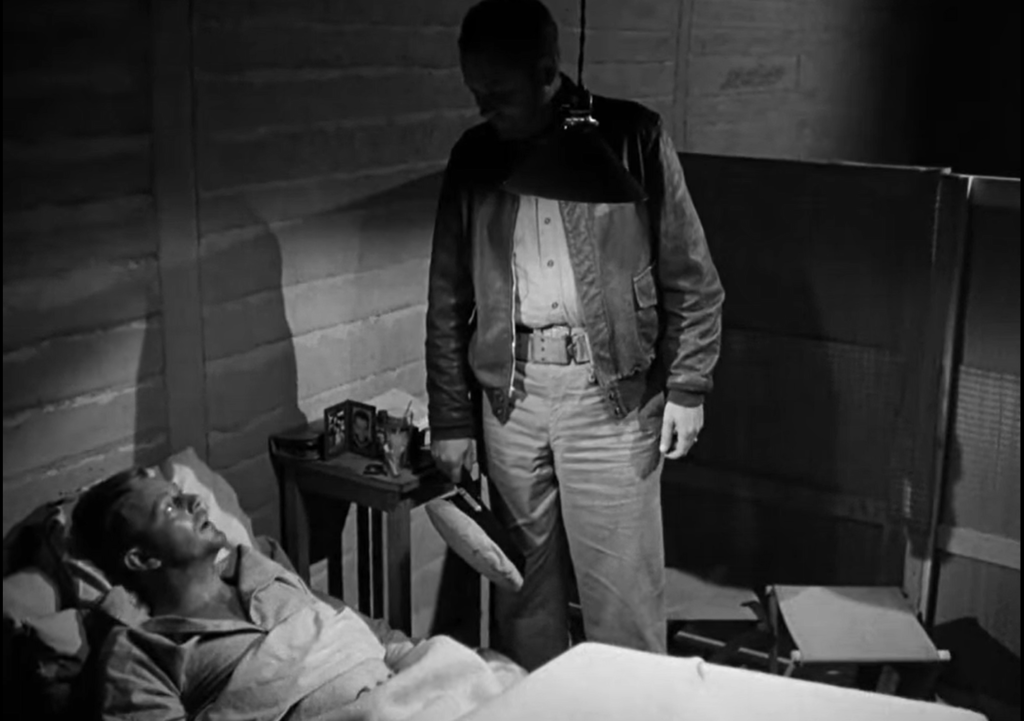
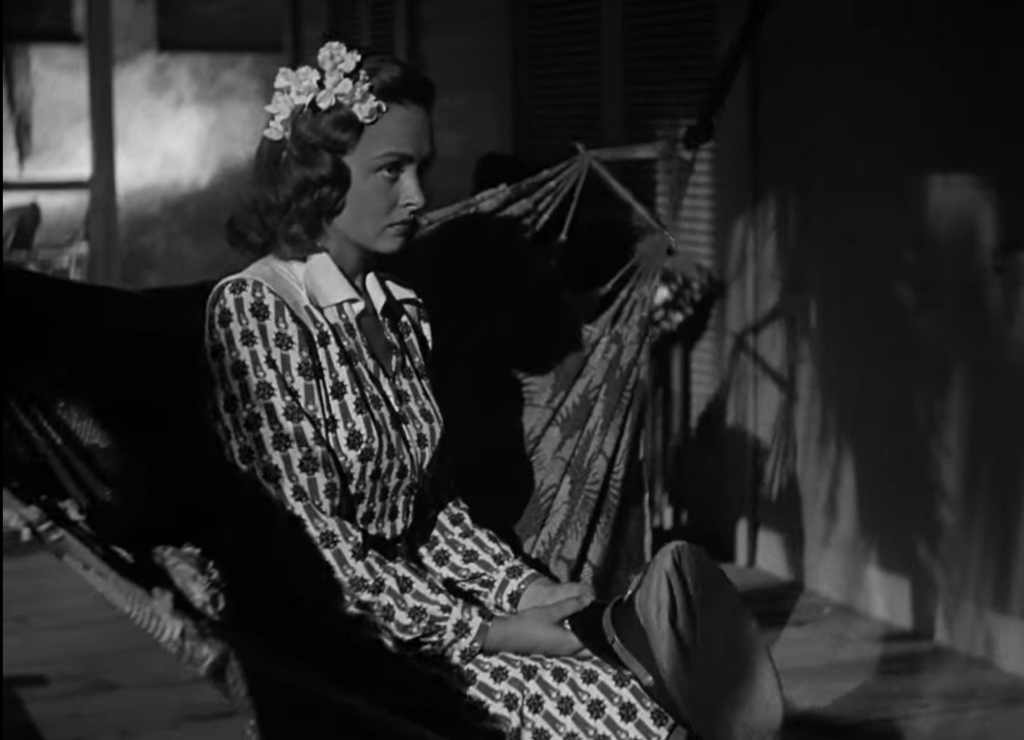
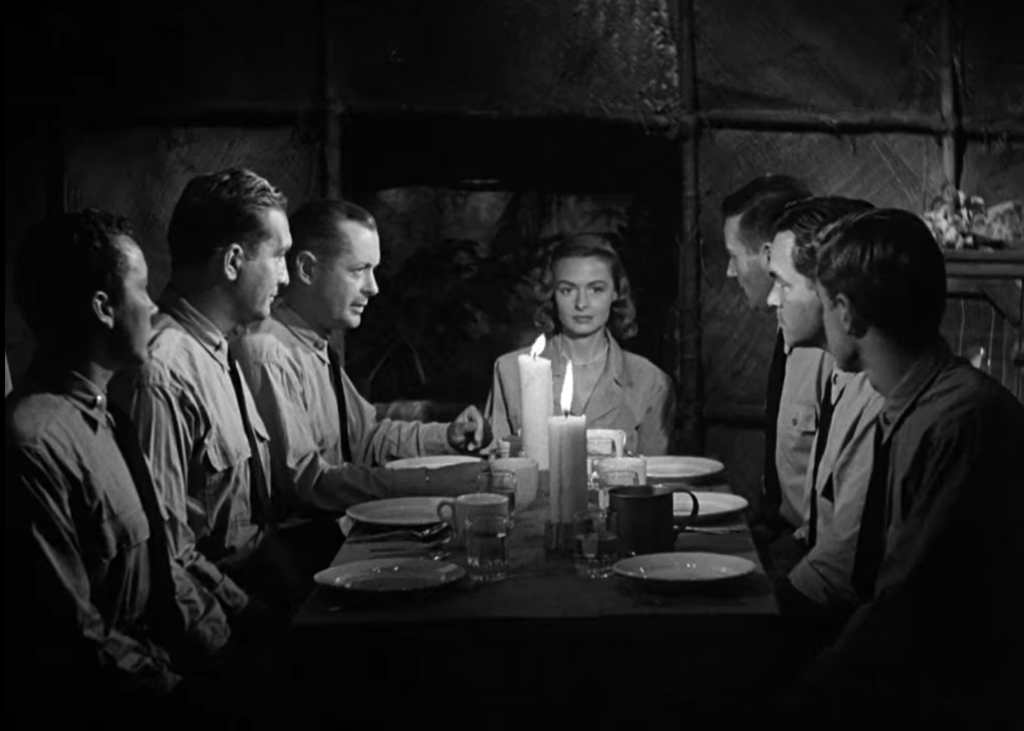
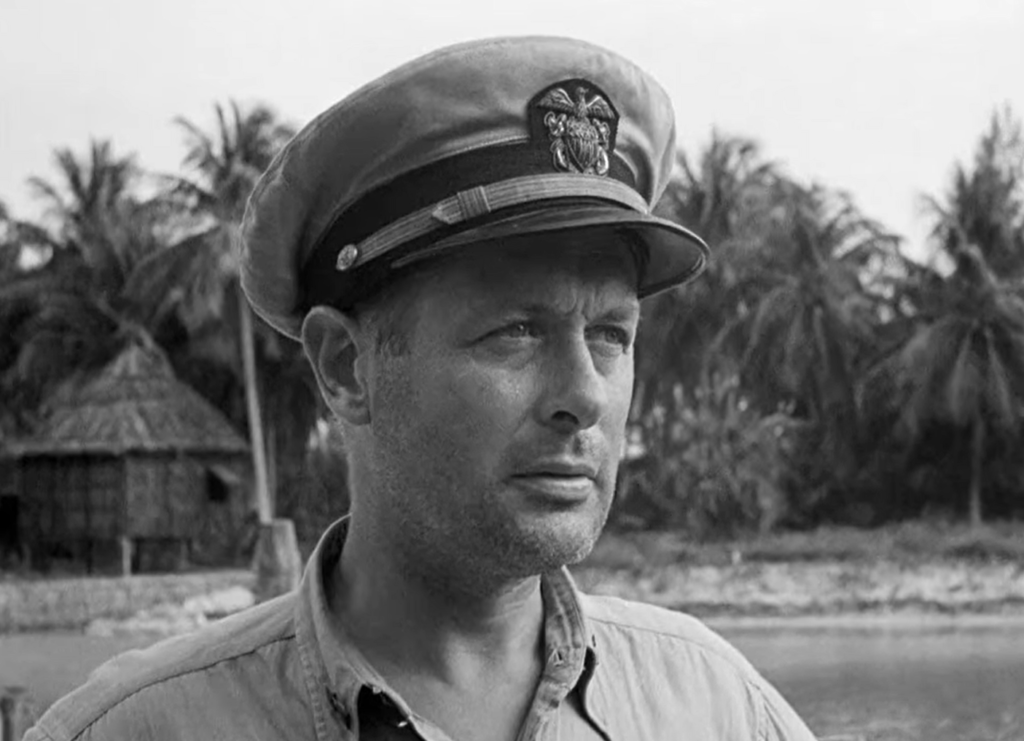
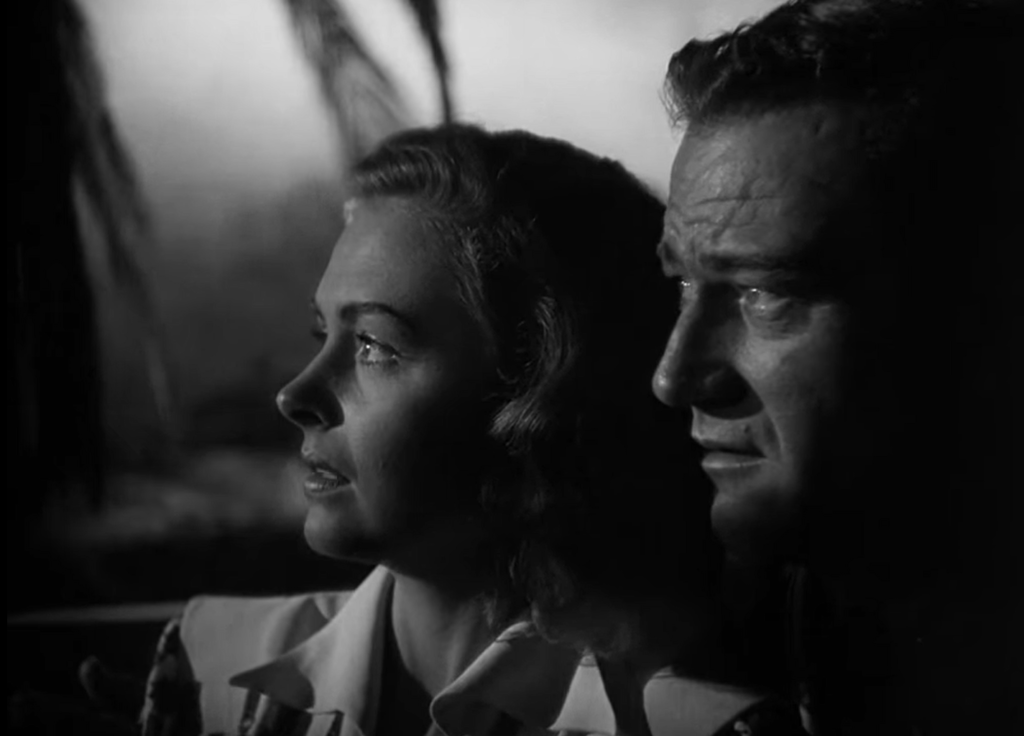
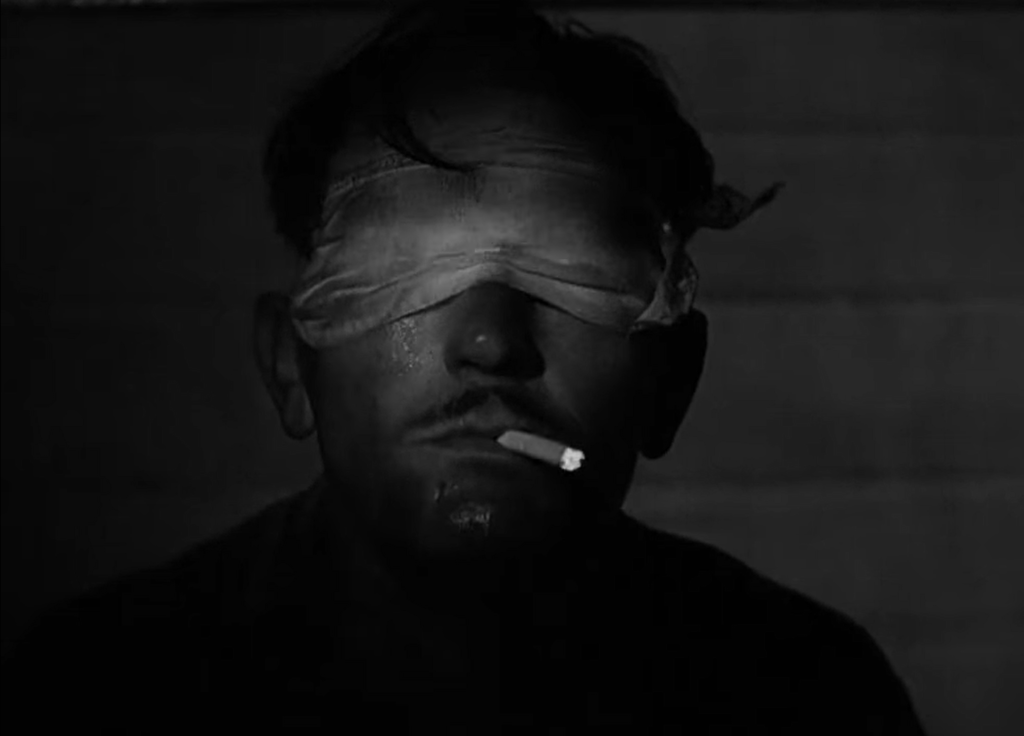
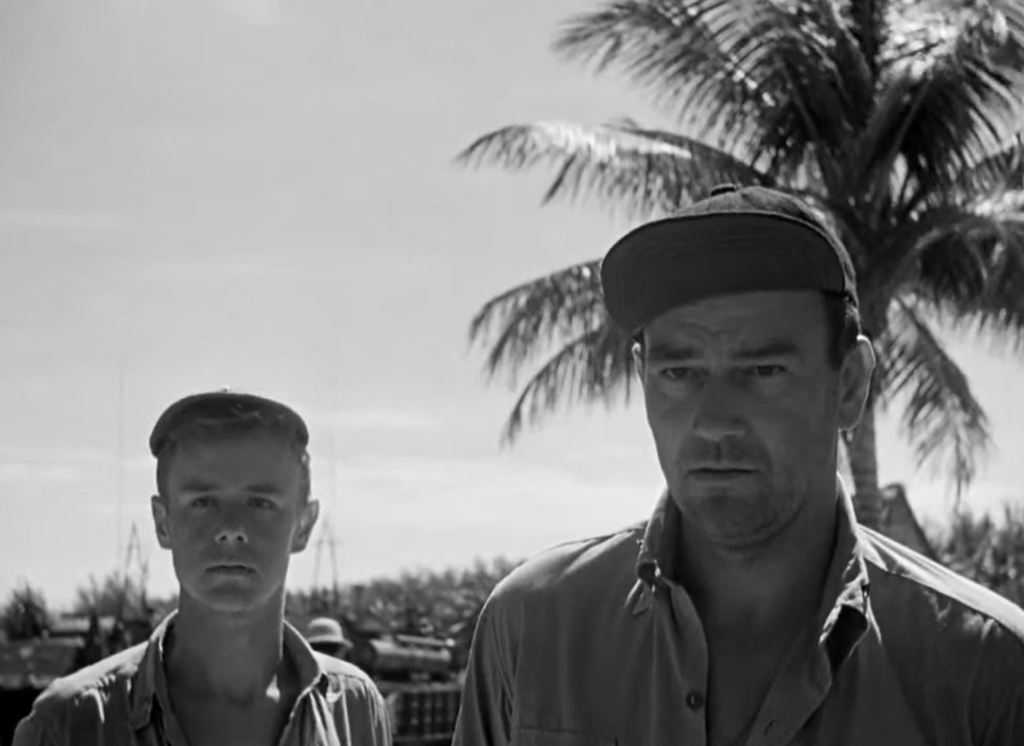
One thought on “They Were Expendable (1945)”
Must-see, for its solid place in cinema history. (I even largely agree with Peary’s take on this one.)
The thing about most Ford films is that, while you’re watching one, you’re almost always reminded that you’re watching a Ford film. Not that that’s a bad thing – it’s just something that seems apparent to me.
This film is an exception, in that we’re only intermittently reminded that we’re watching a Ford film (sometimes with the choice of music; sometimes with a bit of character business). It’s as if he pulled himself out of himself more – in order to achieve a kind of objectivity, as well as a kind of higher tribute.
As a result, the performances have a sort of remarkably natural quality.
The other thing that stands out (to me, anyway): the high number of scenes which are leisurely ones, during downtime. In another film of its type, they might act against the overall power of the film. But not here. They take on a unique dramatic feel.
Overall, this is a war film unlike any other, with a singular tone and a pulse with its own distinct character.